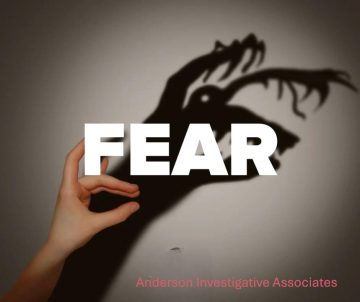
The Silent Struggle: The Impact of Loneliness on Investigative Interviewing
“Loneliness and the feeling of being unwanted is the most terrible poverty.”— Mother Teresa The last two weeks we examined the use of words in the interview room, both by the interviewer and interviewee. We looked at the importance of active listening to that person sitting across from us. Part of that need to “listen” is our responsibility to fully

The Power of Words: Transforming Investigative Interviews Through Intentional Language
“By words we learn thoughts, and by thoughts we learn life.”—Jean Baptiste Girard Last week we looked at our need to be evidence-based in our approach to interviewing. This would mandate stepping away from a non-verbal emphasis on detecting deception to a greater focus on verbal deception detection. But in that realm of words, we also must be cognizant of

Cracking the Code: Evidence-Based Insights into Detecting Deception
“A lie can travel halfway around the world while the truth is putting on its shoes.” – Mark Twain Last week we looked at empathy and fear in the interview room. Keeping with our time in the interview room, where is our focus for detecting deception. Are we still focusing on those non-verbal myths of our past training, or investing

The Power of Understanding: How Empathy Dismantles Fear in High-Stakes Interviews
Empathy has no script. There is no right way or wrong way to do it. It’s simply listening, holding space, withholding judgment, emotionally connecting, and communicating that incredibly healing message “you’re not alone.” – Brene Brown When it comes to interviewing, we must keep fear paramount in our minds. What is the interviewee fearing? Is it jail time? Who’s going

3 Steps to Start Embracing Life’s Changes: Practical Steps to Help You Embrace Change with Confidence
“Change is inevitable. Growth is optional.” — John C. Maxwell Two weeks ago we talked about change and the need to remain open to it when it comes to investigative interviewing. We need to examine research for the best evidence-based practices and implement them to maximize our interviewing results. We can’t get locked into the dogma and folklore of the

9 Proven Tips for Navigating Life’s Toughest Changes: Practical Steps to Help You Embrace Change with Confidence
“Change your thoughts and you change your world”. — Norman Vincent Peale Last week we talked about change and the need to remain open to it when it comes to investigative interviewing. We need to examine research for the best evidence-based practices and implement them to maximize our interviewing results. We can’t get locked into the dogma and folklore of

